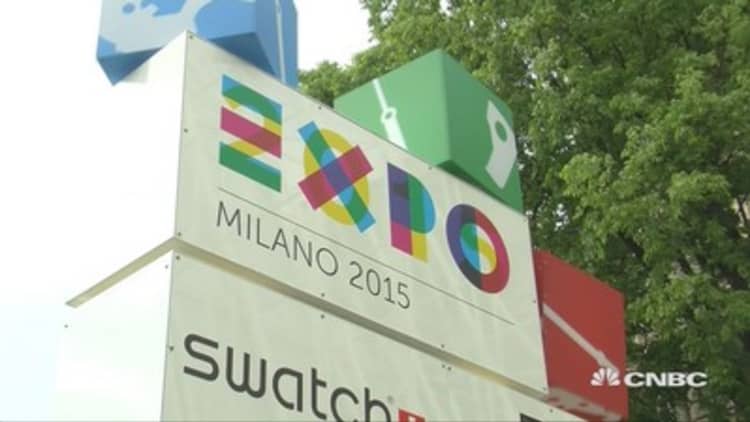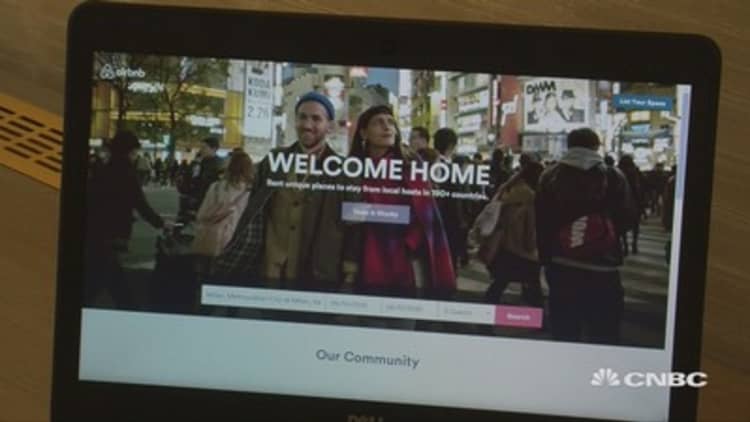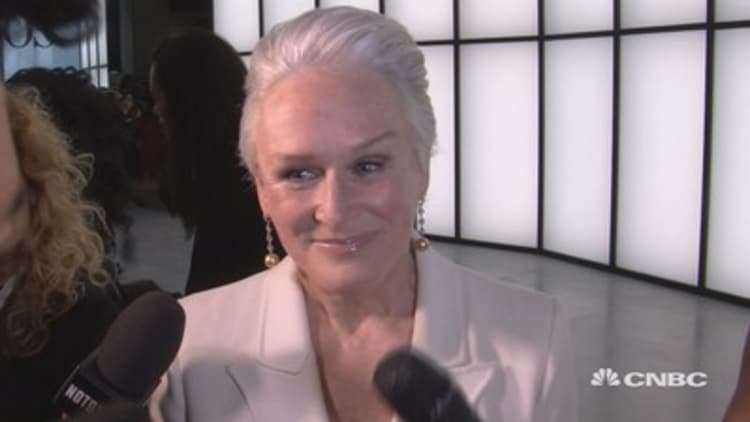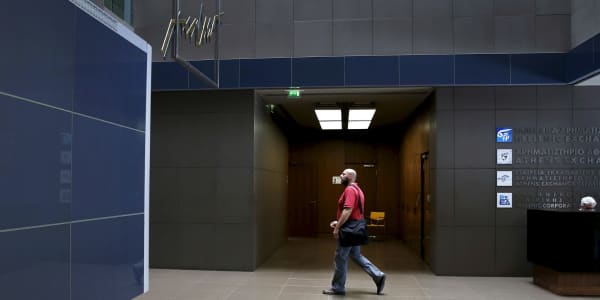


Following student protests on the eve of the six-month-long Milan Expo, we take a look at what it is, how much it cost and why not everyone's happy about it.
First things first, what is it?
The Milan Expo is part of a series of world fairs that date back to 1851. The event takes place every five years and is meant to be an opportunity to showcase local culture and architectural innovation.
Like the Olympics, host cities are often decked out with new buildings and invest heavily in infrastructure, like highways and public transport, ahead of the show.
Notable legacies from previous events include the Eiffel Tower, which was built ahead of Paris' event in 1899. The last Expo was held in Shanghai in 2010 and was one of the largest to date - built across 543 acres and attracting a record 73 million visitors.
Milan has been preparing for the event since 2008, when it won the bid against Izmir, Turkey, and Dubai is already preparing for the next event in 2020.
Why bother?
Milan is hoping to attract over 20 million visitors to the Expo, and fans have said it could help jumpstart the Italian economy -- but not everyone is buying the numbers.
"The official estimates are very optimistic," Nicola Borri, assistant professor of economics at Rome's LUISS Guido Carli university, told CNBC by email.
Officials expect gross domestic product (GDP) to increase between 10-14 billion euros ($11.2-15.6 billion), Borri said, but although this takes into account additional infrastructure, it doesn't include funding costs and any "crowding out effects" – when extra pubic spending hits the level of private expenditure.
The Milan Chamber of Commerce, meanwhile, expects the event to generate 191,000 new jobs for Italy – another figure which the professor said was optimistic.
Francesco Galietti, CEO of Rome-based political risk consultancy Policy Sonar, told CNBC that the Expo would "certainly" contribute to Italy's GDP growth, but noted that its impact would be dwarfed by the Catholic "Holy Year of Mercy," which will run from December 2015.
Italian stocks won't get much of a boost either, according to Marco Elser, a partner at Italian investment banking firm Advicorp. "The equity market in Italy is not going to be effected at all by Expo," he told CNBC.
How much has it cost?
The Italian government has set aside 1.3 billion euros ($1.46 billion) in funds for infrastructure and services relating to the event, according to Reuters. But Borri said that with additional investments, like metro lines and highways, the cost is closer to 12.5 billion euros ($14 billion).
Despite this massive investment, recent media reports claim that many of the Expo's buildings aren't even ready for Friday's inauguration.

"The net benefit for Italy will be much smaller than what is estimated, and likely negative," he said. "Of course, the effect of more investment is larger spending and GDP. But the real question should be: can we have spent money better, in more productive ways? And to this last question, my answer is a definite yes."
Wolfango Piccoli, managing director of geopolitical research group Teneo Intelligence, agreed. "Whether Italy will see a big return is a bit of a question mark at this stage," he told CNBC.
Protests
On Thursday, student protesters marched through the city; the words "No Expo" were spray painted onto shop fronts, while policemen in riot gear patrolled the streets.
More demonstrations are expected on opening day, with a group known as NoExpo planning a procession through central Milan to coincide with May Day labor marches.
"We are expecting tens of thousands of people," Valentina Gazzara, a member of Off Topic, a group involved in the NoExpo movement, told CNBC via email.
"Expo is the event that promised jobs and wealth, but in fact led to the exploitation of voluntary labor, with an excessive load on overtime," she said, adding that many in Milan were unhappy about the event.
The NoExpo website also cited concerns over the involvement of multinationals like Coca Cola, McDonald's and Nestle.
But Piccoli said that he didn't think the protests would be particularly large or violent. He added that Italians are already disenchanted with the Expo, and that the launch event would not gain much traction at home.
"These people are already done with Expo. It's been attracting negative headlines for months because of delays and corruption allegations," he told CNBC. "It's even doubtful that Italian press will pay that much attention to the Expo. It's been a poorly handled opportunity."
The Expo press office did not respond to interview requests from CNBC.
- By CNBC's Kalyeena Makortoff




